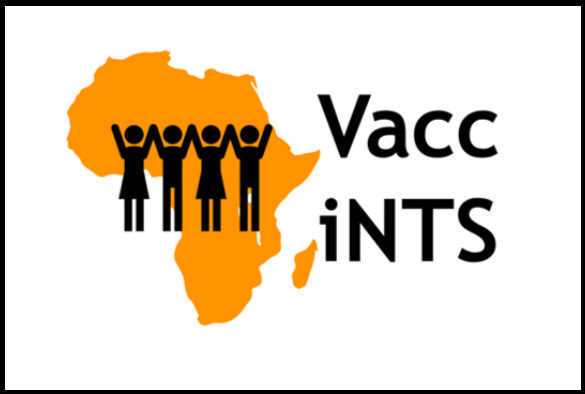
The Vacc-iNTS project: Advancing a GMMA-based vaccine against invasive non-typhoidal salmonellosis through Phase 1 trial in Europe and sub-Saharan Africa
The international project Vacc-iNTS, coordinated by Sclavo Vaccine Association and funded for 5 years by the European Commission, aims to advance development of the vaccine by conducting a Phase 1 clinical study of adults in Europe and Africa.
Invasive non-typhoidal salmonellosis is an emerging neglected infectious disease of sub-Saharan Africa that mainly affects children (under 5 years old) and immunocompromised individuals. In 2017, it was estimated to be responsible for about 31,600 deaths among children with a case-fatality rate of about 14%. Its difficult diagnosis and increasing antibiotic resistance strongly advocate for rapid development of an effective vaccine that is currently not available.
The Vacc-iNTS consortium, made up of 12 partners from 8 different Countries, aims to advance the development of an urgently needed iNTS vaccine by conducting a Phase I clinical study in adults of Europe and Africa. Vacc-iNTS consortium includes 4 iNTS disease-endemic Countries: Burkina Faso, Ghana, Kenya and Malawi. Vacc-iNTS will investigate the immunogenicity and safety of the iNTS-GMMA vaccine, a novel vaccine based on outer membrane blebs released by genetically modified bacteria, developed by the GSK Vaccine Institute for Global Health (GVGH) using the GSK-owned outer membrane (GMMA) technology. This technology is characterized by a simple, robust and scalable manufacturing process that makes it a suitable platform for the development of vaccines against poverty-related diseases. Exploratory immunological analyses and sero-epidemiology studies will also be performed to support further vaccine development. Vacc-iNTS will strengthen a collaborative network to enhance disease awareness and drive advocacy.
The Vacc-iNTS project represents an important step towards a vaccine to counter a poverty-related disease negatively impacting the health and economies of resource-poor Countries. The 5-year project has a total budget of € 6.8 MM and is funded by the European Union’s Horizon 2020 Research and Innovation Programme.
- Title: Advancing a GMMA-based vaccine against invasive non-typhoidal salmonellosis through Phase 1 trial in Europe and sub-Saharan Africa Acronym: Vacc-iNTS
- Start Date: 1 October 2019 – End Date: 30 September 2024
- Coordinator: Sclavo Vaccines Association (Italy)
- EU funding: 6.8 MM EUR
- Project funder: This project has received funding from the European Union’s Horizon 2020 Research and Innovation Programme under grant agreement No 815439
Fondazione Achille Sclavo is heading activities aimed at increasing knowledge and awareness of iNTS disease burden in Sub-Saharan Africa. Moreover, Fondazione Achille Sclavo is responsible for the preparation of a dossier on iNTS disease providing its neglected status to be presented to WHO.
Vacc-iNTS project is also supported by the outcomes coming from the S-AFRIVAC project carried out within the health research grant from the Tuscany Regional government and managed by Fondazione Achille Sclavo in 2016-2018 years.
For more information please see:

Vacc-iNTS Project Partners
The Vacc-iNTS network of experts from academic, industry and non-profit organizations:
- Sclavo Vaccines Association (Italy)
- Fondazione Achille Sclavo ONLUS (Italy)
- GSK Vaccines Institute for Global Health (Italy)
- GSK Biologicals (Belgium)
- University of Oxford (United Kingdom)
- Kenya Medical Research Institute (Kenya)
- University of Cambridge (United Kingdom)
- University of Siena (Italy)
- Institute of Tropical Medicine Antwerp (Belgium)
- University of Liverpool (United Kingdom)
- University of Malawi (Malawi)
- University of Otago (New Zealand)
- Université Ouaga I Professeur Joseph Ki-Zerbo (Burkina Faso)
- Kwame Nkrumah University of Science and Technology Kumasi (Ghana)
- MMGH Consulting GMBH (Switzerland)
